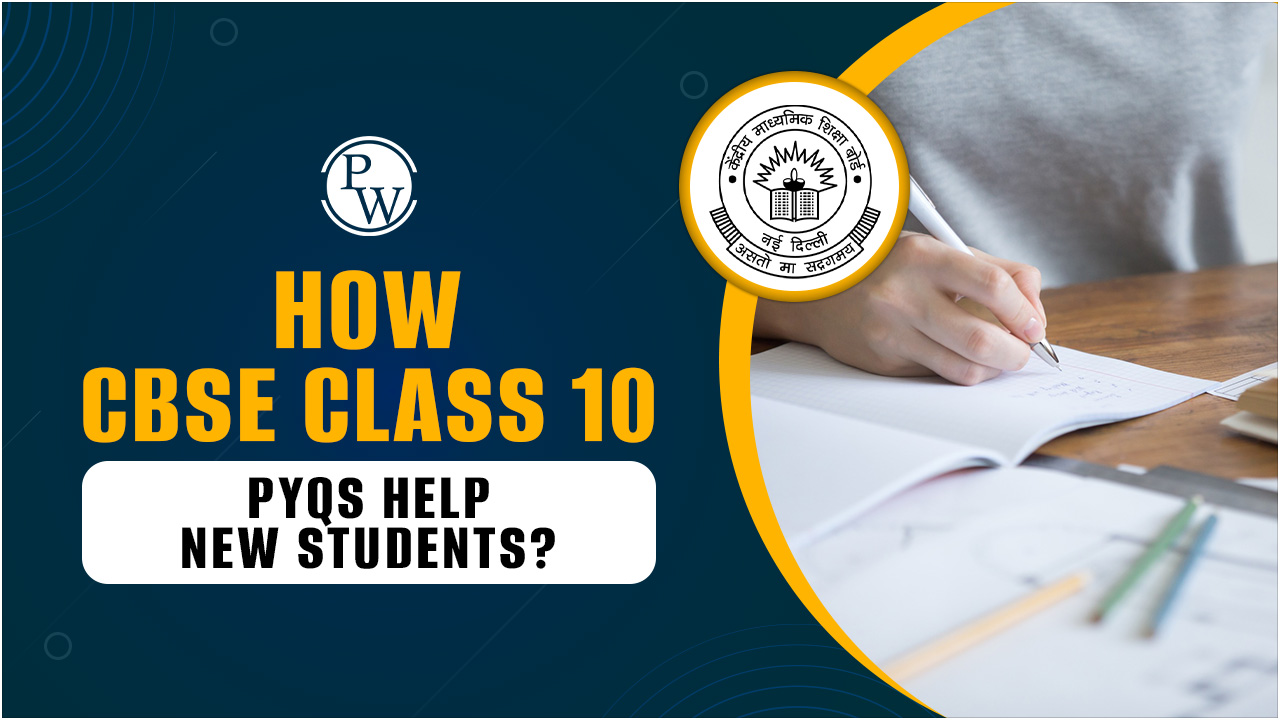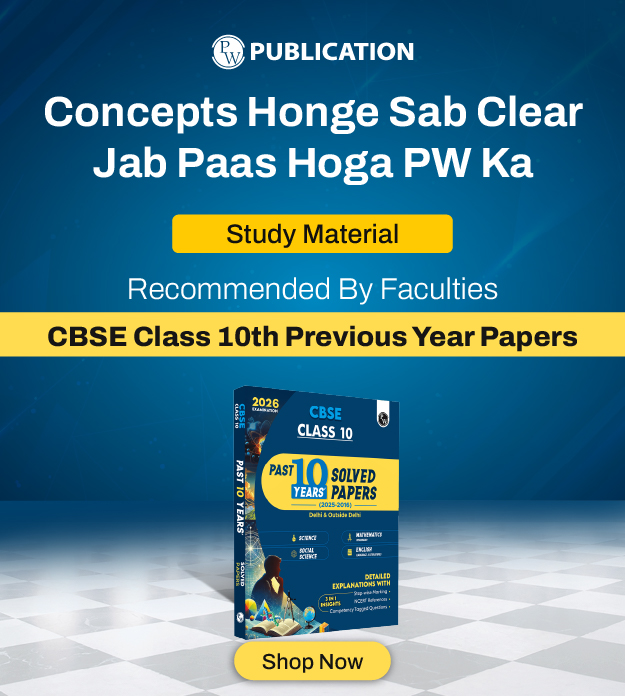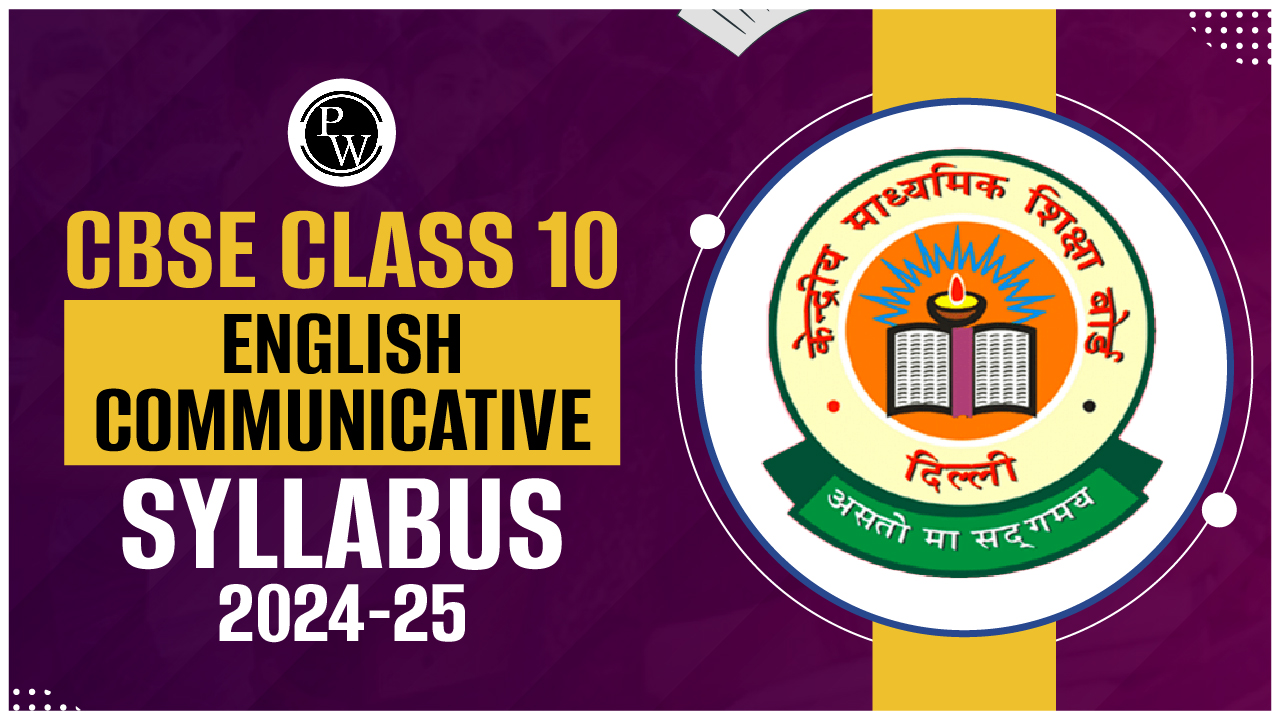How CBSE Class 10 PYQs Help New Students?

How CBSE Class 10 PYQs Help New Students: CBSE Class 10 board exam is the first big test for students, and it's natural to feel nervous about it. Many worry about what kind of questions will be asked, how difficult the paper will be, and how to prepare properly. One of the most effective ways to overcome this stress is by going through CBSE previous year question papers Class 10. These papers help students understand the exam pattern, the type of questions asked, and the level of difficulty.
Practising CBSE PYQ Class 10 can make a huge difference. It helps students focus on important topics, manage time better, and feel more confident. Solving CBSE board previous year question papers Class 10 also improves writing speed and accuracy. Referring to CBSE previous year question papers Class 10 with solutions allows students to check their answers and learn the correct way to present them.
By regularly solving Class 10 previous year question CBSE papers, students can reduce exam fear and be well-prepared, knowing what to expect and how to handle different types of questions.
CBSE Class 10 Important Topics
Students preparing for CBSE Class 10 should identify the key areas to focus on. While it is advisable to study everything, covering the entire cbse class 10 syllabus in detail may not always be possible. To help with effective preparation, here are some important topics that you should prioritise:
|
Subject |
Important Topics |
|
Mathematics |
|
|
Science |
|
|
Social Science |
|
|
English |
|
|
Hindi |
|
|
Sanskrit |
|
Check Out: PW School Books
How CBSE Class 10 PYQs Help New Students?
Preparing for the CBSE Class 10 board exams for the first time can feel overwhelming. Many students feel nervous about the type of questions that may appear in the exam. One of the effective ways to overcome this fear is by practising CBSE previous year question papers class 10. Here’s how solving these papers can help students:
1. Familiarity with Exam Pattern:- CBSE PYQ Class 10 gives students a clear idea of the exam format, including question types, marks distribution, and the number of questions from each section. This helps in understanding how to approach the paper effectively.
2. Understanding Important Topics: By going through CBSE board previous year question papers class 10, students can identify frequently asked questions and important topics. This helps them focus more on areas that are likely to appear in the exam.
3. Time Management Skills: Solving class 10 previous year question CBSE within the actual exam duration helps students learn how to manage their time efficiently. They can practise completing the paper on time and improve their speed.
4. Boosting Confidence: Many students feel anxious before the board exams, but solving CBSE previous year question papers class 10 with solutions helps reduce stress. It builds confidence by showing them that they can solve similar questions with ease.
5. Improving Answer Writing Skills: Studying previous 10-year question paper class 10 CBSE helps students understand the best way to present their answers. They can learn how to structure their responses properly to gain full marks.
6. Self-Assessment and Revision: Practising CBSE class 10 previous year question allows students to check their knowledge and identify weak areas. With the help of solutions, they can correct their mistakes and improve their answers.
7. Enhancing Problem-Solving Abilities: Previous year question papers include a mix of easy, moderate, and difficult questions. Solving them improves problem-solving skills and helps students tackle tricky questions with confidence.
8. Better Exam Readiness: Regular practice with class 10 CBSE board previous year question papers ensures that students are fully prepared for the exam. They become comfortable with the question format and can attempt the final paper with ease.
CBSE Previous Year Question Papers Class 10
As mentioned before, CBSE Class 10 previous year question papers are one of the effective ways to prepare for exams. They help students understand the question pattern, focus on important topics, and improve their answers. To make preparation easier, Physics Wallah has provided detailed and high-quality previous year question papers for students.
Since the Class 10 CBSE board exam is important, solving these papers helps students feel more confident and less stressed. Physics Wallah’s well-explained solutions help students learn the correct way to answer different types of questions. These previous year question papers cover all subjects, making revision simple and effective.
CBSE Class 10 Study Material
Preparing for the CBSE Class 10 board exams requires the right study material to ensure a strong understanding of all subjects. With a vast syllabus, students need well-structured resources that cover important topics, provide clear explanations, and offer ample practice. From NCERT textbooks to reference books, previous year question papers, and sample papers, having the right materials helps in effective learning. Thus, check these quality cbse class 10 study material from Physics Wallah.
CBSE Class 10 PYQs FAQs
1. Why should I solve CBSE previous year question papers in class 10?
Solving past papers helps students understand the exam pattern, important topics, and the type of questions that are frequently asked.
2. How many CBSE PYQ class 10 should I solve before the exam?
It is recommended to solve at least the previous 5 to 10 years' question papers to get a thorough understanding of the exam format.
3. Where can I find CBSE board previous year question papers class 10 with solutions?
Many educational platforms, including Physics Wallah, provide CBSE previous year question papers class 10 with solutions for free or at a minimal cost.
4. Are questions from previous year papers repeated in the CBSE exam?
While exact questions may not be repeated, similar patterns and concepts often appear in the exam.
5. How can previous 10-year question paper class 10 CBSE improve my score?
Regular practice helps with time management, boosts confidence, and improves accuracy, leading to better performance in the exam.










